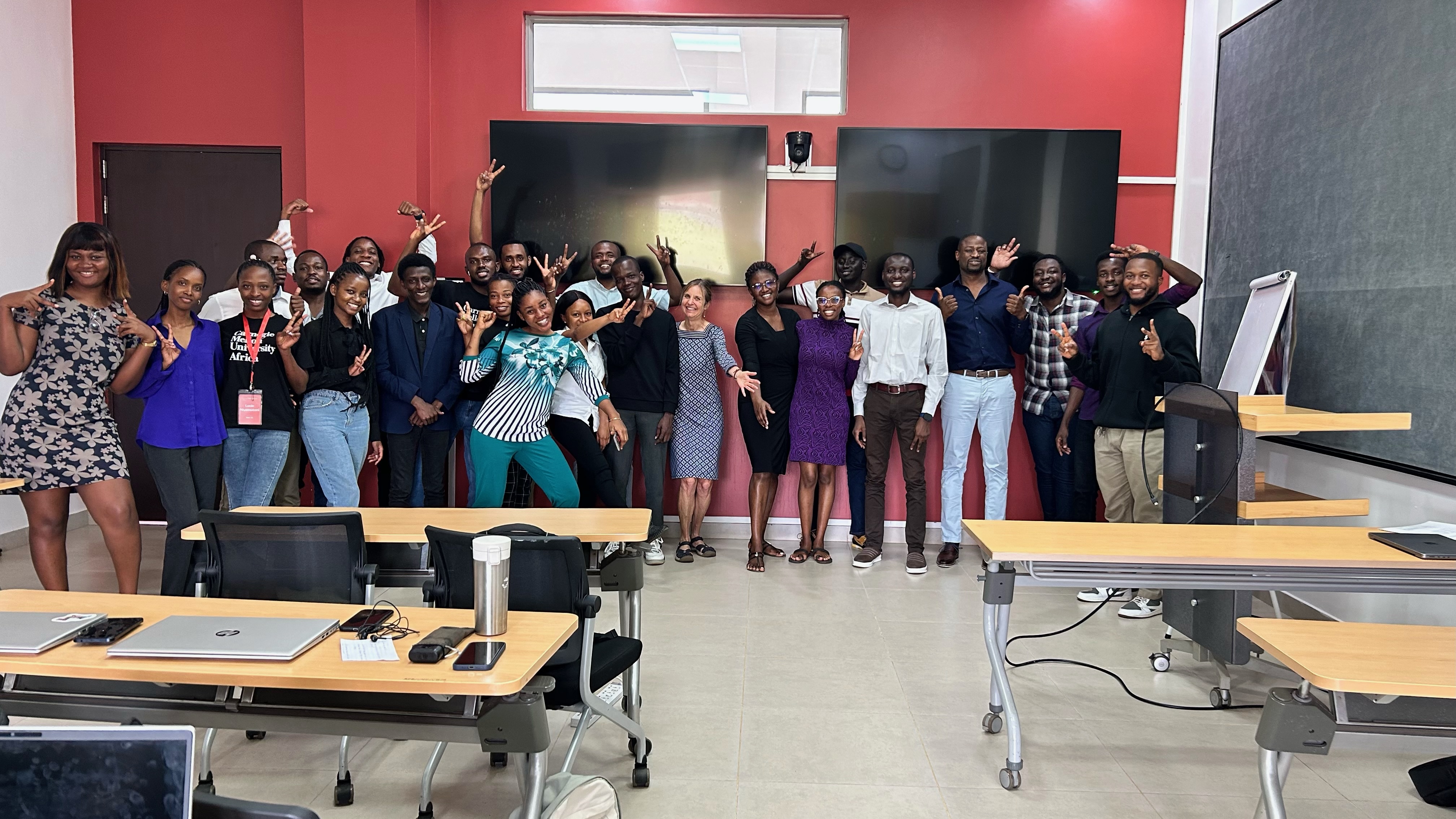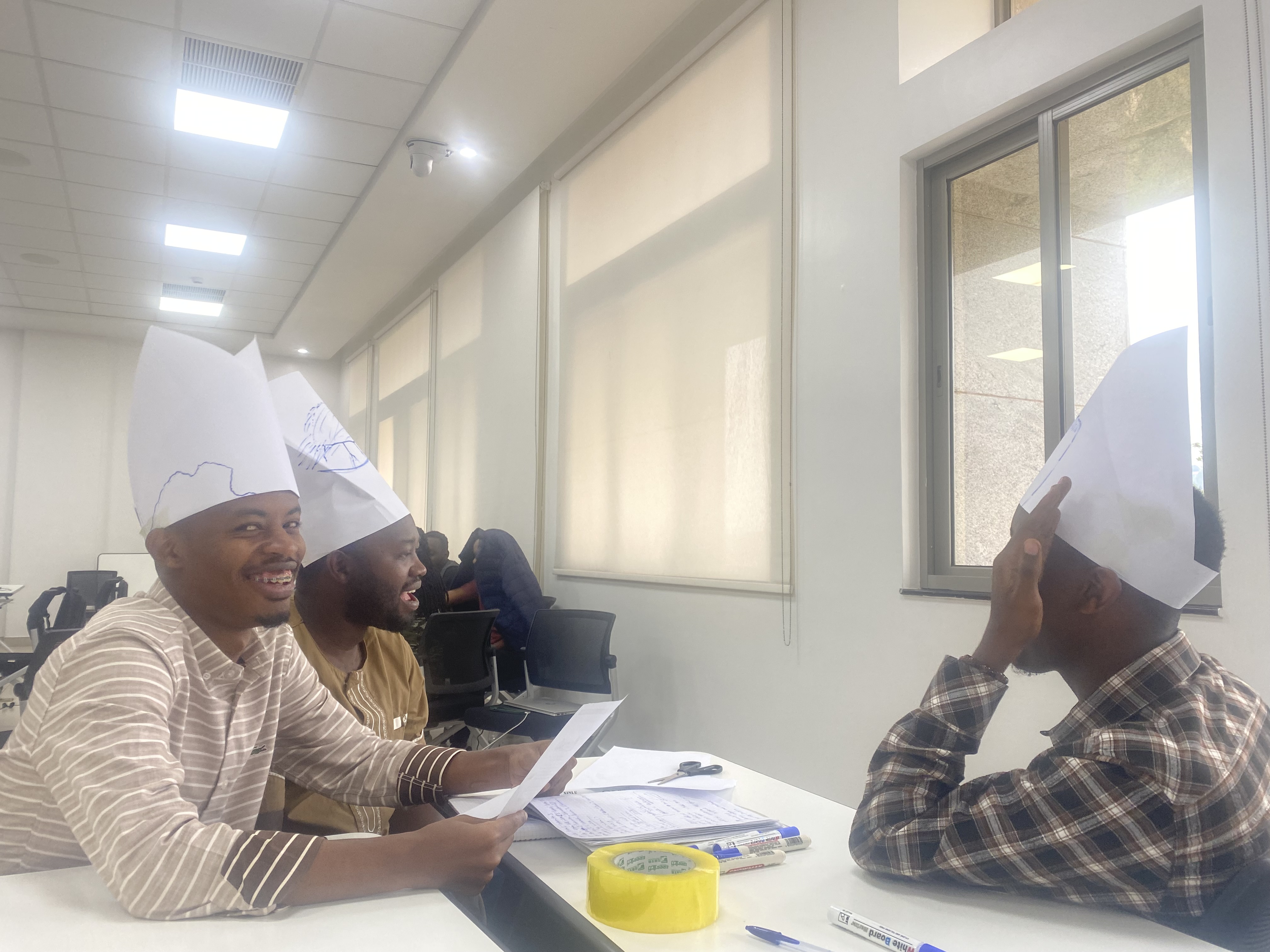
TL;DR
This summer, I realized with great shock that for the greatest, if not entirety of my life, I have taken for granted the empowerment that can result from language capabilities. I realized that I have never stopped to appreciate how much of a difference being fluent makes in terms of one’s confidence and perceived intelligence, the degree to which high levels of fluency are rare, and the challenges that others face in developing their language capabilities. In interacting with students, I also realized firsthand that sometimes, teachers need the students as a source of inspiration.
“The limits of my language mean the limits of my world.” ~ Ludwig Wittgenstein
Sometime this May, I visited a used bookshop. A good friend had recommended the book shop to me after seeing the rather ridiculous price at which I bought a new book.
I do not know if this is a characteristic of used book shops, but this one was rather small, and I could tell from the outside that once inside, one could not avoid talking to strangers. How could one do that, when the shelves were short enough that you could lock eyes with someone gazing at the books on the other side, and the shelf widths so small that no two people could stare at a section without standing at arm’s length?
As I moved across the shelves, it seemed as though I was moving in sync with a man who looked to be in his mid forties. I met him at the History section, and then without knowing or talking to each other, we seemed to walk together to the Memoir/Biography and Economics sections in tandem. He was as shocked as I was, and being the more social of us, spoke the first words.
“Hello, my name is Dr Seraphim, and I am an Agricultural Economist.”
He was wearing a suspicious smile. I could tell that he could tell that I knew what he was thinking about. I shook his hand, introduced myself, and then stayed silent to make room for the question I was certain he was yearning to ask me.
“I can tell you don’t like reading fiction”, he began, “why do you read ‘old people’s books’?”
And so we began a conversation that lasted for about thirty minutes. He was elated to hear that I was Cameroonian, and immediately began to reminisce about the days of Roger Milla first, and then those of Samuel Eto’o. However, just when I was getting carried away by my national football pride, he returned to the subject of reading. At his urging, we shared how we each developed the habit of reading and then he told me about a project he was leading in a rural community here in Rwanda.
Dr Seraphim runs a book club for young children. The project description is simple; every Sunday, he gathers the children and reads to them for an hour.
I will be honest, I had many doubts about the merits of such a project. What I didn’t know was that the coming weeks of the summer were going to vindicate Dr Seraphim’s project and inspire me to reconnect to support him.
I spent the summer supporting programs aimed at helping students improve their communication skills in the English language, and it was a transformative experience for me. As you may suspect, it wasn’t immediately clear to me what impact such programs could have.
Every day for a couple of months, I left my house at about 8:15 am and got started with the day’s business around 8:30 am. My responsibilities were simple: I would do whatever printing the primary lecturer wanted me to do, criticize the lesson plans and point out areas that could be improved, and engage the students during the many in-class activities that we had. Sometimes (and I really loved these times), I will get the chance to run a short story session to demonstrate the fundamentals of literary criticism and careful reading, or teach a portion of the class. You could say that I was the second teacher in a pair that had one teaching from the front, and the other by hopping between small group discussions and asking provoking questions. I was the second teacher.
One funny observation about language that I (and most likely you) have made is that the people who learn a language in a native-like manner hardly bother about its formalisms. That is not so much a call to question their language abilities, as it is a realization that they hardly know or bother to know why things are the way they are in that language. The consequence of this seems to me to be that native speakers have a hard time appreciating the need to spend time over things like language structure, and an even harder time understanding why grasping such things should be challenging to anyone.
I can bet my money that a significant number of people who were raised in English-speaking homes will shrink into cocoons if you challenge them to define gerunds and signposting. Yet if you were to observe their speech, you will find that they use these obscure aspects of the language with mastery.
I think it is this aspect of language that makes native speakers undermine the effort it takes to be fluent, and the negative effects that the knowledge of falling short of this effort can have on the confidence of people learning a language in the later years of adulthood; there is an overarching sense of insufficiency that slowly calls into question not only one’s potential to ever speak fluently, but more dangerously one’s intelligence and qualification to participate in conversations in which every participant seems fluent.
This summer, I was fortunate to meet new people and quickly form friendships with them. I had the privilege of being trusted to help them learn a new language using formal methods and it was fascinating to see how effective and intentional teaching strategies, which may seem deceptively simple, can make the learning process feel more natural and enjoyable.
At the beginning, most of my students appeared to me to be introverts. How could they not, when more often than not, no one wanted to say anything in the classroom? I remember days when not a single hand would go up in response to a question that seemed rather mundane to me, and I will be left wondering if the teaching methods were ineffective or we had the most unique collection of introverts in the room. Yet as time went on, I observed the students grow in their confidence, first in their small groups for in-class decisions, and then in the larger group. I realized in hindsight that what was holding them back was not so much a predilection for introverted behavior as it was an over-consciousness of their shortcomings in fluency.
As the instructional team, we decided to have lunch with the students on a daily basis. For want of entertainment, I will chat with a different student over lunch every day. One day I was having a good chat with a student I thought was particularly reserved. I sought his opinion of the program; I wanted to know what if he thought spending the summer in an English Language class was dutiful employment of his time. He smiled and said something that I promise to remember for the rest of my life: “Do you think that at the start of this program I could have been confident enough to sit over lunch with you to chat? The fact that I am comfortably seated in conversation with you is enough progress for me.”

My summer experience with my students was also more than an altruistic experience.
I must confess that the daily realization that I was making a difference by contributing positively to the lives of others was addictive. If this is what good teachers feel on a daily basis, then I may very well consider becoming one as well.
I also enjoyed hearing the personal stories of my students. Every time we shared our experiences, I could tell that they could never guess how much they inspired me. With names withheld, I will tell you two of those stories that left an indelible mark on me.
I had known Blaise before the summer program. We met in 2019, and I knew a little bit about the university he attended. When we met at the start of the program, he was so excited to meet me again. Blaise is much older than me, so I expected a little bit of awkward behavior to spring from the realization that he will be the student, and I will be the “second teacher”. I was wrong. Throughout the program, his humility was impeccable and exemplary. One day over lunch, I asked him how life had been after he left university in 2019 with a first degree in Electrical Engineering. He smiled, looked at me, and told me with neither an air of remorse nor self-pity that life had been tough. He shared with pride how he had worked as a foreman at construction sites to make ends meet, and then told me that he had come to give his life another chance. For his age, his prior education, his humbling experiences, and his hope for the future, every time he participated as he so often did with passion in our in-class discussions I found myself challenged to be more grateful and optimistic in my worldview.
Unlike Blaise, I hadn’t met Johnson. The strands of white hair on his head were quick to inform me that he was much older than I, and I immediately registered the image of a disgruntled old man sitting uninvolved at the back of the class in derision of his younger peers who undoubtedly seemed naive. Yet like Blaise, it didn’t take time for me to be struck by his active participation, respect for his much younger peers, and hunger to learn. As usual, he told me about himself over lunch. It turned out that Johnson was a General Practitioner of Medicine; he was Dr Johnson! After graduating with a medical degree, he had practiced medicine for three years and then decided to pursue a Masters degree in Artificial Intelligence, and then seek a career at the intersection of both fields. He told me; “Lemfon, I believe that we can never stop learning, and that diversified learning is more valuable than is immediately obvious in our society.”
Who or what could have prepared me for these experiences? A job that I had expected to hold only for pragmatic reasons quickly and unexpectedly became a source of light and warmth in my life.
Towards the end of my summer program, I thought about Dr Seraphim. I was reading Ian Morris’ counter-intuitive book on war when I remembered that Dr Seraphim and I had debated who should take the book, and I only prevailed because he wanted to read Colin Powel’s autobiography much more than he wanted to read Ian Morris. I remembered his reading project, and unlike when I met him at the start of summer, I was convinced that we needed much of such projects that were run by genuine, intentional and careful people. I called him and offered to visit as often as I can to read to his students. He was more than delighted.
Summer is now over and I have moved on to other things. I miss the daily dose of adrenaline that came from knowing that I was helping others grow. However, my nostalgia is outdone by the joy I felt and still feel from the experience, and I am grateful to have been a part of the programs I supported in the summer.
I will remember this summer forever. It was truly a summer to remember.
Thanks to Catherine Wambui for reading drafts of this.